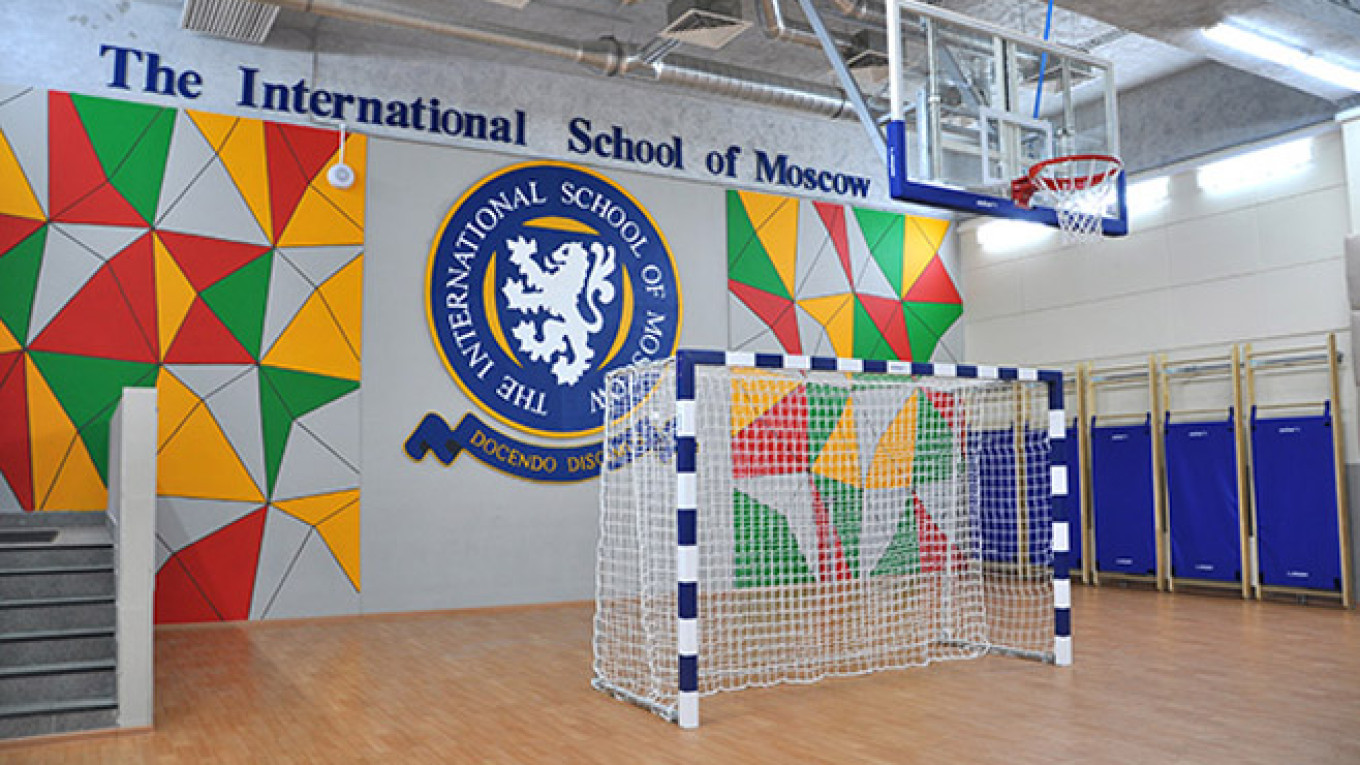For many foreign professionals debating a move to Moscow, the deciding factor is not the amount of money they'll make or even the career-boosting potential of the position. They worry about their family's safety and whether or not their children will have a high-quality education.
But long waiting lists persist at most international schools as the Russian academic year kicked off on Monday, despite the vigorous expansion of existing educational institutions and a steady trickle of new arrivals.
"If you look at the size of the city and its international community, there's certainly demand that outstrips the facilities to support it," said Paul Seedhouse, headteacher at the International School of Moscow, or ISM.
Some job candidates have to turn down offers when they are unable to find schooling for their children, and companies have begun taking family status into consideration, said Marina Semyonova, client services director at relocation company Intermark.
If there are two equivalent candidates, sometimes the company chooses the candidate who doesn't have children because otherwise there could be some problems, Semyonova said.
While the needs of expatriates remain unmet, demand is escalating rapidly in another segment: high-level Russian professionals who are often employed in foreign companies and think of their children's future in international terms.
Vlada Mikhailova enrolled her 14-year-old daughter Yelizaveta at ISM after learning about international schools in her years working at Dutch bank ABN AMRO. For Mikhailova, an English-language, British-style education means access to a world of international opportunities that her daughter would otherwise struggle to enter.
"Studying at a Russian school is very challenging, but what then? You leave … to another country, and they have different standards there," Mikhailova said.
About 40 percent of applicants to ISM are Russian nationals, Seedhouse said. The school can only partially meet this demand because, along with many other international schools, it caps non-native English speakers at a certain percent of the student body — 25 percent at ISM — to preserve its multinational environment.
And yet if the demand for international education is so strong, why aren't the major providers knocking down Moscow's doors, as they're spreading like wildfire across China and India?
Entrance Barriers
As in other areas of the Russian economy, the administrative barriers to starting up a school are considerable, particularly for newcomers.
It is "incredibly expensive" to import materials, Seedhouse said. If a school allots 100,000 euros ($130,000) to a departmental budget, 50 percent of that may be spent on the cost of importing textbooks and other educational supplies. Similarly, resolving the visa issues necessary to bring in international staff can take years.
"In China it was challenging," said Seedhouse, who previously worked as head of the British School in Guangzhou. "In Russia it is another step above that."
Russia is now at the stage where China was over a decade ago, when the country was becoming more accessible to expatriates but not actually "catering to growth in the expatriate population," said Jon Zurfluh, director of the Anglo-American School in Moscow. He worked in multiple international schools in China prior to his move to Russia.
Moscow aspires to become a thriving center of international commerce, but when it comes to attracting foreign business, such a relatively humble question as whether the city has enough English-speaking kindergartens can have a decisive impact.
Experienced expats see a relationship between the availability of lifestyle enhancing infrastructure — such as schools, hospitals and recreational facilities — and the appetite of foreign companies to enter a new market.
"Build it, and they will come," Zurfluh said.
Rapid Growth
Despite the challenges, some education providers are taking the leap. The total number of English-language international schools in Russia has almost doubled in the past five years, from 35 in 2009 to 69 now, with more than 15,000 students studying at such institutions across the country, according to the International School Consultancy Group, or ISC.
Among the fastest growing chains is the Atlantic International School, a favorite among Russian politicians, celebrities and well-to-do expatriates. With a yearly tuition of about $30,000, the school has launched three campuses in Moscow and one in St. Petersburg since its founding in 2009 and plans to open two more sites in the coming school year.
On-site international education has also become a selling point for residential communities looking to attract both Russian and expat clients. The elite Skolkovo Park residential compound, for instance, recently contracted Atlantic to run a campus on its territory. Rosinka, the oldest expat residential compound in Moscow, has also focused attention on its educational offerings with a tender for a new provider earlier this year. The winner, ISM, will open the doors to its new primary school at Rosinka on Monday.
International Trend
From a global perspective, the spread of international schools signifies a full-scale transformation in the nature of education. The total number has almost tripled since 2000, from 2,584 schools worldwide to 7,316 today, generating $34 billion in annual revenues last year, according to ISC.
In Russia, as in other countries, this boom is driven by the richest 5 percent of the population. As their incomes rise, this globally oriented upper crust invests in their children's education with the hope of sending them to top-flight universities abroad. Local children now fill 80 percent of the places in international schools globally, according to ISC.
"If the trend line continues — and I trust that it will — what you're seeing is the replacement of national educational systems with the globalization of education. It's just at the early stages," said Zurfluh of the Anglo-American School.
Contact the author at d.damora@imedia.ru


